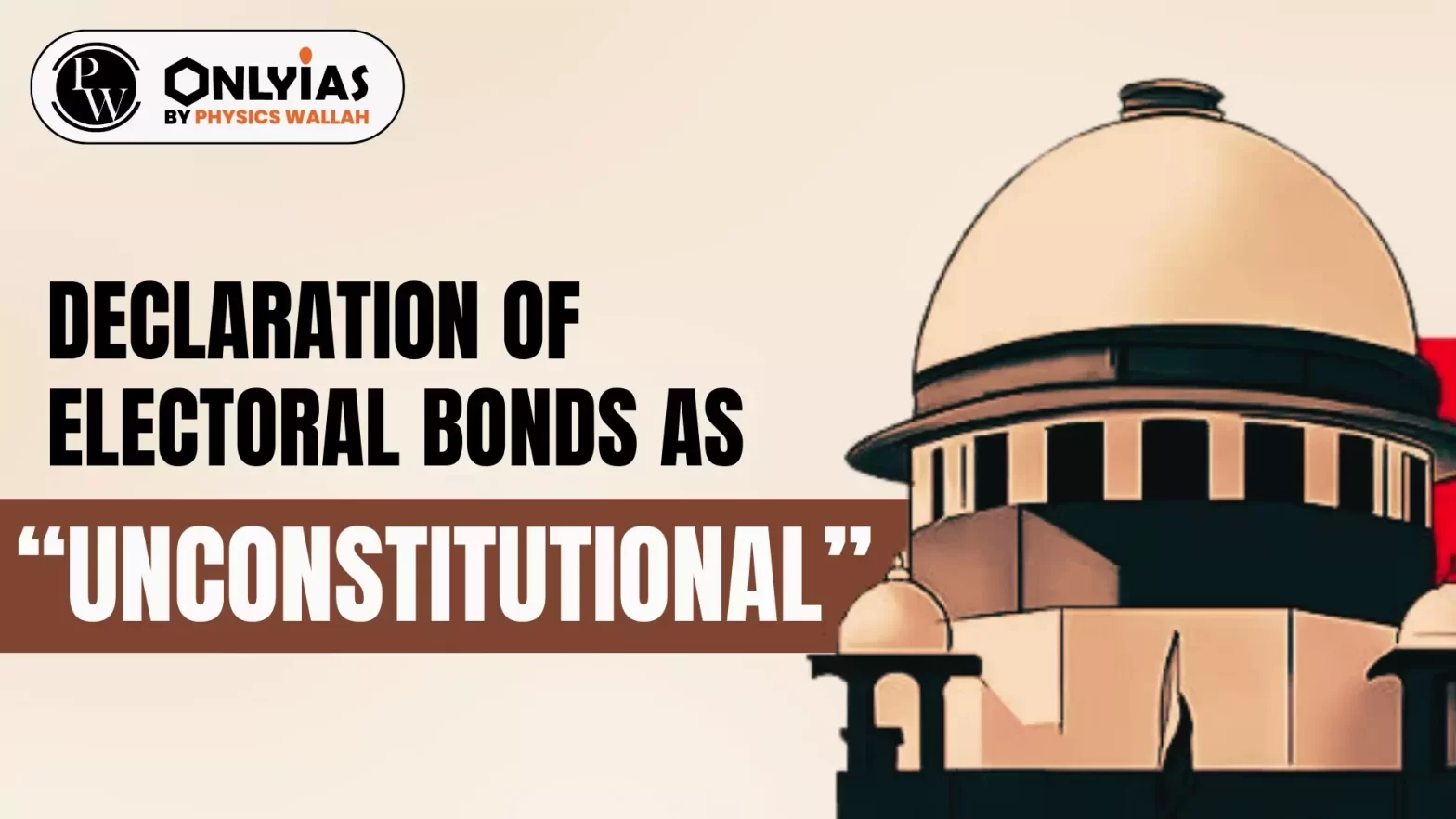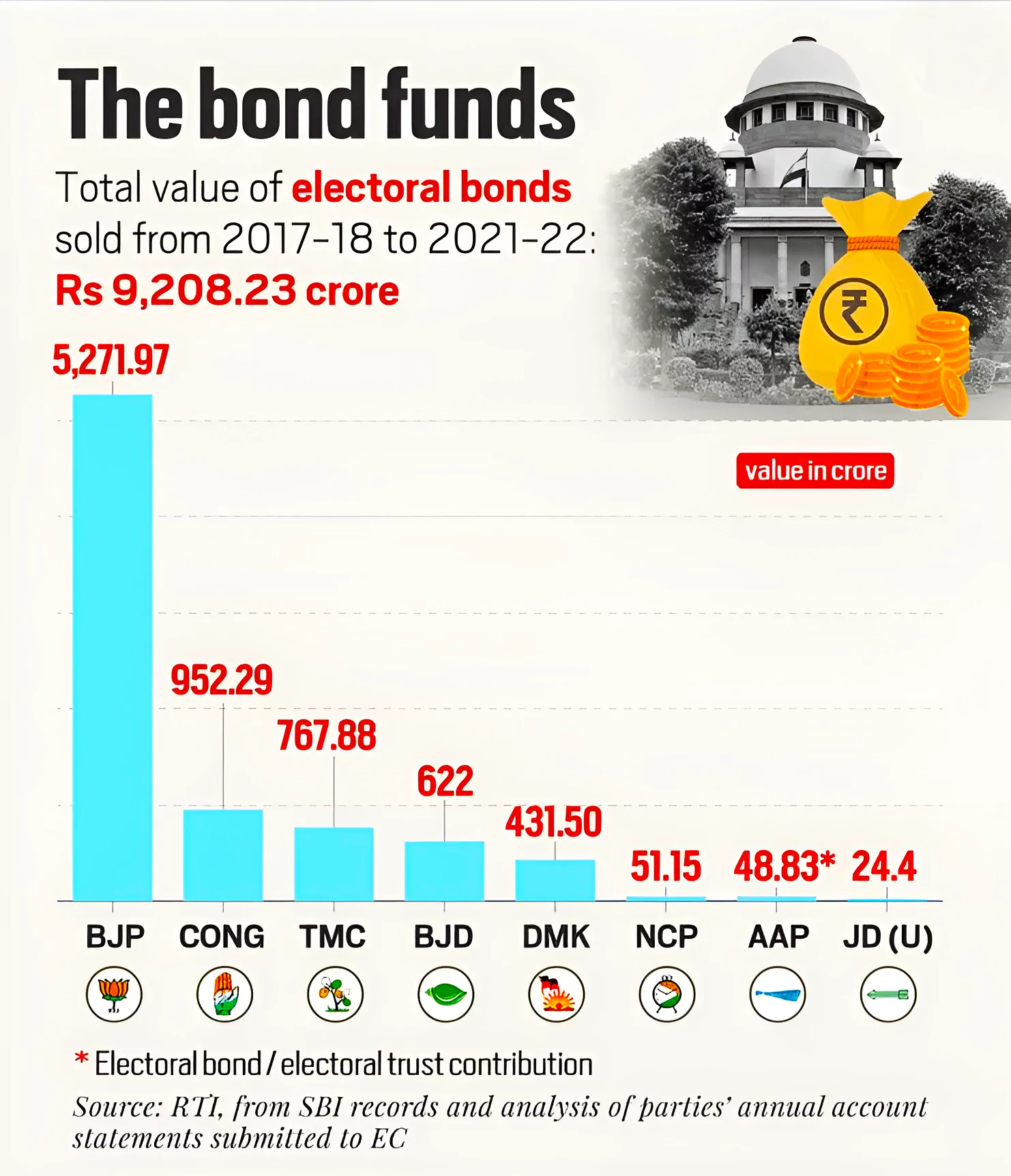
This article is based on the news “Supreme Court strikes down electoral bonds scheme: ‘unconstitutional’, ‘arbitrary and violative of Article 14” which was published in the Indian Express. The Supreme Court struck down the electoral bonds scheme asserting that the scheme violates the right to information under Article 19(1)(a) of the Constitution.
| Relevancy for Prelims: Supreme Court, Political Funding in India, Election Commission Of India and Reserve Bank Of India (RBI), and Fundamental Rights (Article 12-35).
Relevancy for Mains: Electoral Bonds: Background, Legal Timeline, Court Proceedings and Judgments. |
|---|
Legal Framework for Political Funding in India
|
|---|

| Must Read | |
| NCERT Notes For UPSC | UPSC Daily Current Affairs |
| UPSC Blogs | UPSC Daily Editorials |
| Daily Current Affairs Quiz | Daily Main Answer Writing |
| UPSC Mains Previous Year Papers | UPSC Test Series 2024 |
To get PDF version, Please click on "Print PDF" button.
How Climate Change is Creating Refugees Across the...
View India’s Gender Gap Report Ranking as a Warn...
Aiding India’s Progress with Choice, Control and...
Bridge too Far: On the Bridge Collapse in Vadodara
How India’s Biofuel Potential Complements its Le...
As PM Modi lands in Namibia, this is why the Count...
<div class="new-fform">
</div>
